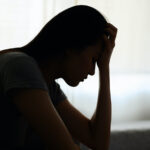This is a response to the essay “The End of Feminism,” which was published on January 10, 2024.
My recently published book, The End of Woman, grapples with the reality that contemporary feminism has been a highly destructive force, leading to the breakdown of the family, increased levels of female unhappiness and denigration, and the devastation of millions of unborn children through the normalization of abortion. The End of Woman is not an exhaustive look at feminism’s 200-year history, but an effort to understand how, as a culture, we have gotten to the point today where most cannot define womanhood and women are actively being erased socially and even biologically.
Many Catholic feminists, who for years have relied on feminism’s first wave as the foundation for their own definition of feminism, have not been pleased with my book. While researching for the book, I surprisingly discovered that the roots of feminism’s rot go back to its earliest years of the movement, seemingly threatening the oft-repeated Catholic feminist position that the first wave was good and is worthy of emulation by today’s women. While there were pockets of goodness in feminism’s first century, second-wave feminism did not hijack the movement, but rather, was built on a first-wave foundation.
Writer Rachel Lu recently penned an essay in these pages that engages my book as an example of what she calls “anti-feminist” work. Unfortunately, Lu draws some surprising conclusions about my book that, I think, are not representative of my work. She makes four overarching points to which I would like to respond.
Start your day with Public Discourse
Sign up and get our daily essays sent straight to your inbox.Andrew Tate
As the review begins, Lu speaks of a range of those who fall under an anti-feminist banner. She includes me, my colleague at the Ethics and Public Policy Center, Jennifer Bryson, and author Peachy Keenan. Lu, however, sees our work as reactionary and somewhere on a continuum with Andrew Tate, who has been charged with human trafficking and is a self-professed misogynist who has promoted violence against women. Grouping us together, Lu warns that our position will strengthen people like Tate. She warns:
Even worse, anti-feminist arguments often work to legitimize a reductive, ignoble view of womanhood that has already become disturbingly visible in the overtly misogynistic thinkers mentioned above. Writers like Keenan and Gress probably wouldn’t consent to appear in a smiling photograph with Tate. But they share some important premises and are to a great extent responding to similar provocations. These kinds of parallel movements can easily feed each other.
Of course, there is always a risk of one’s work being distorted by the wrong people, but it is hard to imagine what kind of premises Tate and I could share. Quite unlike Tate, I’m starting from my concern for women. Moreover, I suspect Lu and others who claim a modified “feminist” title would rightly object to being placed on a continuum with feminists like Beyoncé, Megan Rapino, or Cardi B.
As to Lu’s charge that I’m a trendy reactionary, I would point out that my work is not new. The End of Woman is the second book I’ve written on this topic, the other, The Anti-Mary Exposed: Rescuing the Culture from Toxic Femininity, which came out in 2019, was based on a chapter I wrote in a book I published in 2016, long before any position I’ve taken became a part of the zeitgeist.
Rationality
The second point that I believe Lu wrongly attributes to me is a belief that women are not rational. She writes, “Gress seems not to grasp the significance of the fact that women are rational, which fact is quite central to any discussion of virtue or of human nature broadly.” Lu is taking issue with the fact that I explain that women are essentially mothers and that I don’t explicitly say that we are rational. As she points out, since Aristotle, human nature has included rationality in its definition. The ancient Greeks also include featherless bipeds as a definition of humans. I did not include this either because the thought of discussing women without rationality is as silly as talking about feathered women.
In my book, I spend eleven chapters discussing some very dark and heavy realities (none of which Lu addresses). I didn’t want the book to end without giving readers hope. The last chapter is largely about metaphysics, without saying as much. My goal was to give readers real mental hooks to start thinking afresh about what it means to be a woman beyond “adult human female.” I use motherhood in a broad way to speak of who we are. Motherhood has been understood to be an important attribute of womanhood since the time of Eve. Women are made to be mothers: not just biological mothers, but also psychological and spiritual ones. But at no point in my book do I say, “All motherhood must look exactly the same,” or “Motherhood does not involve work,” nor am I looking for some kind of “romanticized traditionalism.” I’m looking to help women think differently about themselves rather than leaving them to simply parrot what feminists have told us to think.
We need a new grammar for women to help us know what a woman is, and how to be a good woman. In other words, I am engaging in the “serious conversation” that Lu also claims to desire, and yet she stifles that conversation by falsely characterizing my working definition into an irrational, nonworking housewife. I don’t have a problem with not working; nor, as a working author and entrepreneur, do I have a problem with women working. How motherhood looks for each woman is something for mature adults to gauge; there will always be tradeoffs. Only someone with a terribly dim view of motherhood could identify motherhood with irrationality.
But what happens if we look at motherhood with fresh eyes instead of from the perspective that the masculine (or the disembodied rational) is the ideal for womanhood? What if we looked at the bigger picture and imagined the healthy kind of woman who attracts people because of her maternal goodness? Women can be simultaneously patient and kind, gentle and competent; they can be selfless and fun and playful, serious and wise. None of these is exclusive to a stay-at-home mom, although I know many who embody these qualities. And, I readily admit, all of these attributes can be expressed outside the home as well, in the workplace, in schools, in public offices. I agree with Lu when she suggests, “Perhaps women desire political rights, advanced education, or a broad range of opportunities simply because these advantages befit rational beings.” But women must understand that they can approach them as women, not as genderless persons.
Hard Problems?
The third area where Lu misrepresents my argument is when she claims that “some hard problems follow from that inflexible view” of women as mothers. She continues: “I would suggest that it is not possible to hold simultaneously 1) an ancient classical view of virtue, 2) a robust sexual complementarianism, and 3) the view that the sexes are morally equal. If women are simply less rational than men, it might make sense to relegate them to a subsidiary social role with a restricted range of activities and liberties (just as children are so restricted).”
Lu erroneously assumes I must jettison one of these three truths. In short, I reject her suggestion and agree with the Catholic Western tradition, which has staunchly upheld the three. This tradition is rooted in Genesis: “So God created man in his own image, in the image of God he created him; male and female he created them.” This reality, then, highlights another problem with Lu’s criticism. She claims that “[a] human being’s intrinsic worth and dignity derive from this capacity to reason and love which cannot, as such, be sexed.” But human beings are sexed. Yes, we are both made in God’s image and both have equal intrinsic worth and dignity, but we are not the same. Our sex differentiates us. To pretend otherwise is to pretend that we are disembodied angels and ultimately reject the goodness of the body.
Mothers and Fathers
My last point of major disagreement with Lu’s essay is the prioritization she gives to work over fatherhood and motherhood. Lu writes that if women are made for motherhood (in her narrow characterization of it), “[m]en can simply pursue rational excellence as such, while women are expected to prioritize sexual distinctiveness over the unfolding of their own particular potentialities.” Or put another way, men have it better. They get to do the cool stuff like work in boardrooms and have “elite jobs” while women “prioritize sexual distinctiveness over the unfolding of [our] own particular potentialities,” which I think means having children.
Here, Lu is following the work of Betty Friedan and later feminists who make work the focus of human teleology. As I explain in the book, Friedan was very much involved with the Communist Party and was anxious to articulate and propagate Engels’s idea that women would not be free until they worked outside the home. Thus, motherhood and homemaking were denigrated. The home, according to Friedan, was just a comfortable concentration camp. Friedan’s work had most women worried that they might be missing out on the real world, and millions rushed out of their homes to go to work.
This communist idea of work, that it must hold a place of primacy in our lives, has become the backbone of the feminist movement. It has also become one of the reasons why abortion must continue, so that women, unhampered by the demands of children, are as available as men for work. Elite women continue to convince millions of women that children are an obstacle to their happiness, severing that most tender and intimate of human bonds between mother and child. Their success is seen in the fact that yet again in 2023, abortion caused the greatest number of deaths worldwide.
What Lu misses about both women and men is our calling by natural law to propagate the human species. Men are called to be fathers just as women are called to be mothers. Work serves that end (and the other ends of the natural law); it is not the end itself. The type of work Lu describes, whether performed by a male or female, is only one aspect of the much larger demands and responsibilities to which men and women are called.
Nuance
Finally, let me note that Catholic feminists today expect readers to adopt a nuanced understanding of their position. They call themselves feminists and range wildly in what they mean by that, yet they almost unanimously diverge from secular feminists on issues like abortion and contraception. I’m sure they would add more to this, but this is a start to convey their deep disagreement with what most would think a feminist believes. It is surprising then, that somehow my work is given an incredibly un-nuanced read, reducing me to a cookie-baking Andrew Tate type who doesn’t believe women are rational.
My work, which I know is changing the lives of women who find themselves confused, broken, and frustrated by the feminist orthodoxy, deserves at least as fair and nuanced a read as Lu would require for her own.
Image by Clara and licensed via Adobe Stock.














